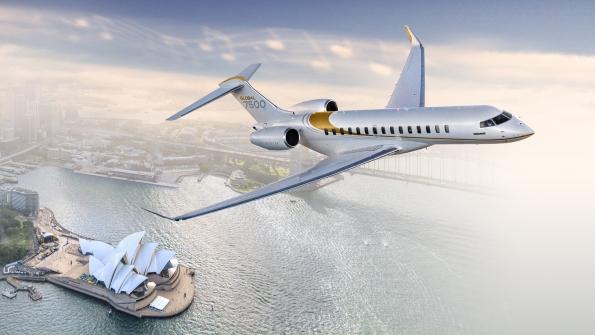
Key aerospace and defense (A&D) suppliers Woodward and Hexcel have called off their planned merger due to the novel coronavirus outbreak, ending a three-month saga that always baffled many industry insiders and has since been overtaken by survival necessities.
“The pandemic has resulted in a need for each company to focus on its respective businesses and has impacted the companies’ ability to realize the benefits of the merger during these unprecedented times,” they said in a joint statement. Neither company will pay a breakup fee to the other.
In the joint statement, the CEOs of both companies—who know each other well—upheld their reasons behind the erstwhile “merger of equals” (MOE). The stock-swap deal, announced Jan. 12, was supposed to create a horizontally powerful entity—not vertically integrated—that could especially capitalize on lightweighting and other sustainability technologies increasingly demanded as commercial aviation battles a bad climate-change image.
But financial analysts and aerospace advisers never bought the pitch and openly questioned the combination of such different companies—Hexcel is a leading provider of composites to A&D while Woodward excels in aircraft parts and fluid- and motion-control systems. At industry conferences in February and March, many commenters would tell audiences they did not understand the reasons. Also, their stock prices have both dropped around 57% since the merger announcement.
In turn, reaction from analysts expressed various levels of surprise with the cancellation. “Not surprising to us given diverging short- and long-term implications and management distraction from COVID-19 impact,” said Credit Suisse analyst Rob Spingarn and his team.
“Both the supply and demand shocks to the commercial aircraft market have created much more distraction now and require a focus on near-term cost actions and execution, as opposed to white-knuckling a merger on the scale of Woodward-Hexcel,” Ken Herbert of Canaccord Genuity said.
“Calling off the merger is clearly bad news for both companies, as we think scaling up makes a lot of sense, particularly when it comes to dealing with a crisis,” analysts Rob Stallard and Karl Oehlschlaeger of Vertical Research Partners said. “Unfortunately, the timing was off as events have conspired to cancel their plan.”
At the same time as announcing the end of the proposed merger, the two companies also unveiled several defensive measures in the face of the collapse in air travel due to the virus outbreak and subsequent slowdown in economic activity. For instance, both Woodward and Hexcel announced so-called poison-pill provisions to make it harder for hostile takeovers of their companies, considering their subdued stock prices and what could be the worst and most rapid downcycle in the history of aerospace.
Hexcel is now focused on managing the looming aerospace falloff and to cut costs, including reducing its workforce, implementing a hiring freeze, restricting travel, and cutting capital expenditure (capex) spending plans, according to a Hexcel statement. The company also extended its debt maturity schedules for any material maturities before 2024.
“Based on this strong liquidity, Hexcel is well positioned to manage through this period of market challenges,” Hexcel said in a separate statement. Hexcel is scheduled to report its next quarterly earnings results on April 20.
Woodward likewise is laying off workers, furloughing others and freezing new hires. Chief executive Tom Gendron is taking a 25% salary cut while all non-CEO officers are taking 10% reductions, according o Woodward’s separate statement. Wages are frozen companywide and there will be no bonuses. Capex and working capital will also be reduced. Its dividend is being cut and guidance for 2020 shelved.
Woodward is also a supplier to the business aviation industry. It developed the fuel system, air management components and actuation hardware for the Passport engine, and developed the flight deck control components for the Bombardier Global 7500 aircraft and other business aviation aircraft, for example.

